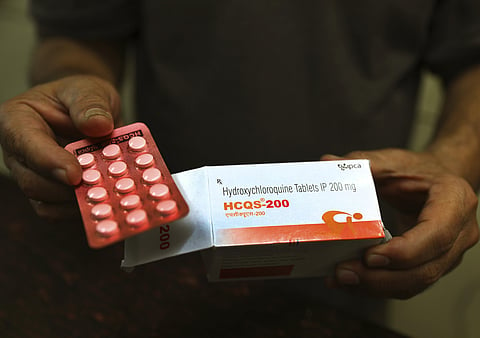

BENGALURU: The use of Hydroxychloroquine (HCQ) for treating COVID-19 for children may be risky, warned experts. A doctor from KC General hospital said that they had an eight-year-old child who contracted the virus from his COVID-positive mother. As he was asymptomatic, no medicines were given.
“But HCQ cannot be given to children below 15 years of age, as it has toxicity and can affect them adversely. Children should be treated only with symptomatic medicines,” he said.
But the use of HCQ is still controversial with contradicting opinions among the medical fraternity.
Dr Kishore Kumar, Founder Chairman and Neonatologist at Cloudnine Group of Hospitals, Bengaluru, said, “HCQ is not recommended at all for children below 15 years and so far, the dosage to be given for children is not known. The drug has a prolonged QT interval, where people who take the medicine can sometime experience cardiac arrest.”
Dr CN Manjunath, Senior Cardiologist and Director of Jayadeva Institute of Cardiovascular Sciences and Research, who is also a member of the Karnataka COVID-19 Task Force, said, “For children suffering from pneumonia, cortical steroids and other anti-viral drugs, including Azithromycin, are given. Right now, HCQ is given to adults for prophylaxis and active treatment of those who have pneumonia or lung infection or depending on their state of health. Azithromycin and HCQ are given together for active treatment, while for prophylaxis it is only HCQ.”
However, some experts said it can be used in severe cases.
“We have to weigh the risks and benefits. HCQ does surface for moderate to severe COVID-19 cases. It can alter the internal electrocardiogram and the risk is too high. The treating physician takes a decision on a case-to-case basis. It is not used for children with epilepsy, liver diseases, heart diseases and chronic conditions. On other children, it is used on a five-day regimen,” said Dr Supraja Chandrashekar, Consultant, Paediatric Intensivist, People Tree Hospitals.
Dr Rakshay Shetty, Head, Paediatric Intensive Care Services, Rainbow Children’s Hospital, explained that HCQ helps in preventing the infection from becoming a severe form of pneumonia where a patient requires ICU or ventilator support.
Both Shetty and Supraja said that so far, cases of coronavirus are not severe among children worldwide.
Shetty pointed out that only if used over a long duration can HCQ lead to toxicity and for short durations, such as COVID treatment, it does not lead to toxicity.